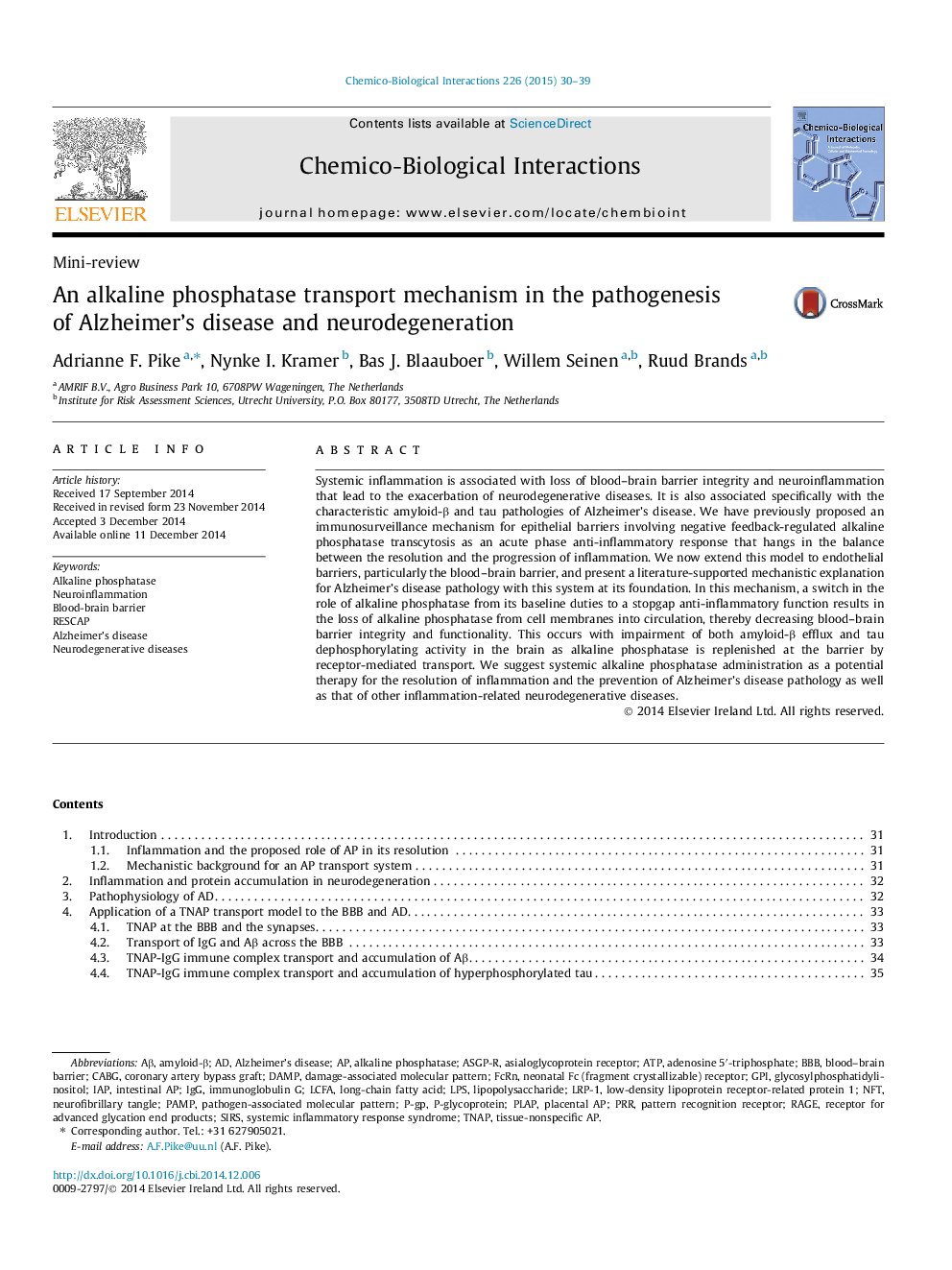| Article ID | Journal | Published Year | Pages | File Type |
|---|---|---|---|---|
| 5847963 | Chemico-Biological Interactions | 2015 | 10 Pages |
â¢We apply our alkaline phosphatase transport hypothesis to the blood-brain barrier.â¢This provides a novel explanation for Aβ and tau pathologies in Alzheimer's disease.â¢The system requires transcytosis of alkaline phosphatase in an IgG immune complex.â¢This is triggered by inflammation and the neonatal Fc receptor is the carrier.â¢We support the mechanistic hypothesis with a solid literature foundation.
Systemic inflammation is associated with loss of blood-brain barrier integrity and neuroinflammation that lead to the exacerbation of neurodegenerative diseases. It is also associated specifically with the characteristic amyloid-β and tau pathologies of Alzheimer's disease. We have previously proposed an immunosurveillance mechanism for epithelial barriers involving negative feedback-regulated alkaline phosphatase transcytosis as an acute phase anti-inflammatory response that hangs in the balance between the resolution and the progression of inflammation. We now extend this model to endothelial barriers, particularly the blood-brain barrier, and present a literature-supported mechanistic explanation for Alzheimer's disease pathology with this system at its foundation. In this mechanism, a switch in the role of alkaline phosphatase from its baseline duties to a stopgap anti-inflammatory function results in the loss of alkaline phosphatase from cell membranes into circulation, thereby decreasing blood-brain barrier integrity and functionality. This occurs with impairment of both amyloid-β efflux and tau dephosphorylating activity in the brain as alkaline phosphatase is replenished at the barrier by receptor-mediated transport. We suggest systemic alkaline phosphatase administration as a potential therapy for the resolution of inflammation and the prevention of Alzheimer's disease pathology as well as that of other inflammation-related neurodegenerative diseases.
